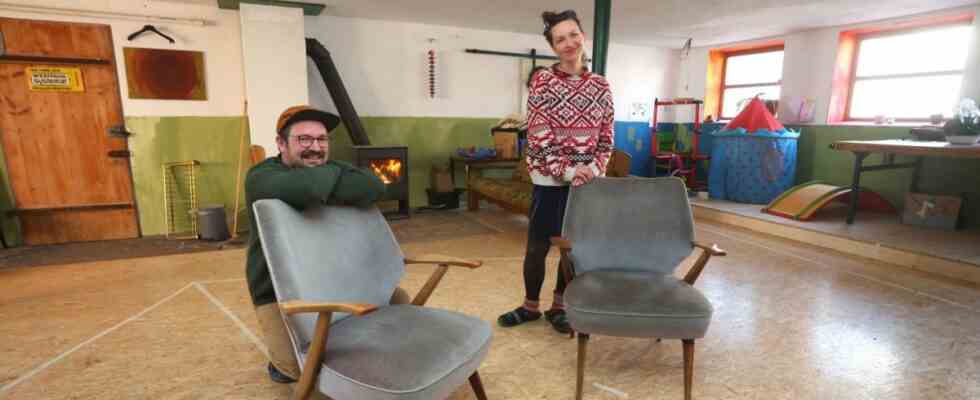David Sirch lets his gaze wander through the spartan “living room” that used to be a stable. Why did the 38-year-old move from Munich to the former farm in Allgäu with his family? “The room is 110 square meters, our previous Munich apartment was smaller,” says Sirch and laughs. Enough space to mark a race track on the ground for the two sons with adhesive strips. During the corona pandemic, the three 83 square meter rooms in the state capital became too small for Sirch, his wife Julia Engel and the children. When the playground in the inner courtyard was closed during the first lockdown, the decision was made. The family moved to the countryside – to Oberegg, a district of Unteregg, which in turn is part of an administrative community in the Unterallgäu district. Around 440 people live here in just over 100 houses, you can go shopping in a bakery and in a village shop.
Old farmsteads are currently very popular in the Allgäu. “We get an average of one request per day,” says Ramona Riederer, who is responsible for regional development at Allgäu GmbH. Experts not only in Bavaria see that the lack of space in the metropolises is currently causing many young families to move to the countryside. “The trend towards the ‘new love of the countryside’ has been confirmed,” says the most recent market report by the Central Real Estate Committee. Families would leave the largest cities “with flags waving,” said co-author Harald Simons. Because there, above all, “small shoeboxes” would be built and hardly any affordable, large family apartments. Anyone who wants to move to the Allgäu wasteland is often faced with a problem at the moment: there are hardly any farmsteads for sale. “We have much more demand than supply,” says Riederer. Again and again, old farms were passed on to communities of heirs who could not agree on what should happen to the property. Sometimes it is also unclear whether the abandonment of the farm previously located there was also reported to the tax office – and whether larger tax payments may be threatened when the sale is made. “But we also have grandma, who still lives alone on the family farm and doesn’t want to move into assisted living,” says Riederer’s colleague Johanna Krauss. In order to inspire owners to convert their courtyards into living space, Allgäu GmbH initiated a “master class courtyard transformation”. It was originally designed for ten participants, and around 50 owners applied. Because of the great interest, you started when you were 14, says Riederer. The participants also get homework, have to deal with building law and financial issues and meet for excursions. The course has made it a little clearer for David Sirch and Julia Engel what they want to do with their 2200 square meter property with a separate apartment, barn and garden. According to the current idea, accommodation for guests should be created, a common room as a meeting place and for seminars as well as workplaces for “workation”, a kind of working holiday – a trend that has been reinforced by mobile working in times of Corona. David Sirch could also imagine space for open-air events such as courtyard concerts on the property he bought from his uncle. “We just don’t want to be alone in the 440-inhabitant village,” he says. The family wants to rebuild the oldest part of the property and live in it themselves. “We’re still planning and now we’re full of energy.” David Sirch commutes to Munich once a week. On the other four working days, video conferences were enough, he says. Julia Engel, who was initially skeptical about moving to the Allgäu, is now happy that the children can play in the garden. “It may take longer to arrive in the village,” she says, “but I give it time.”

